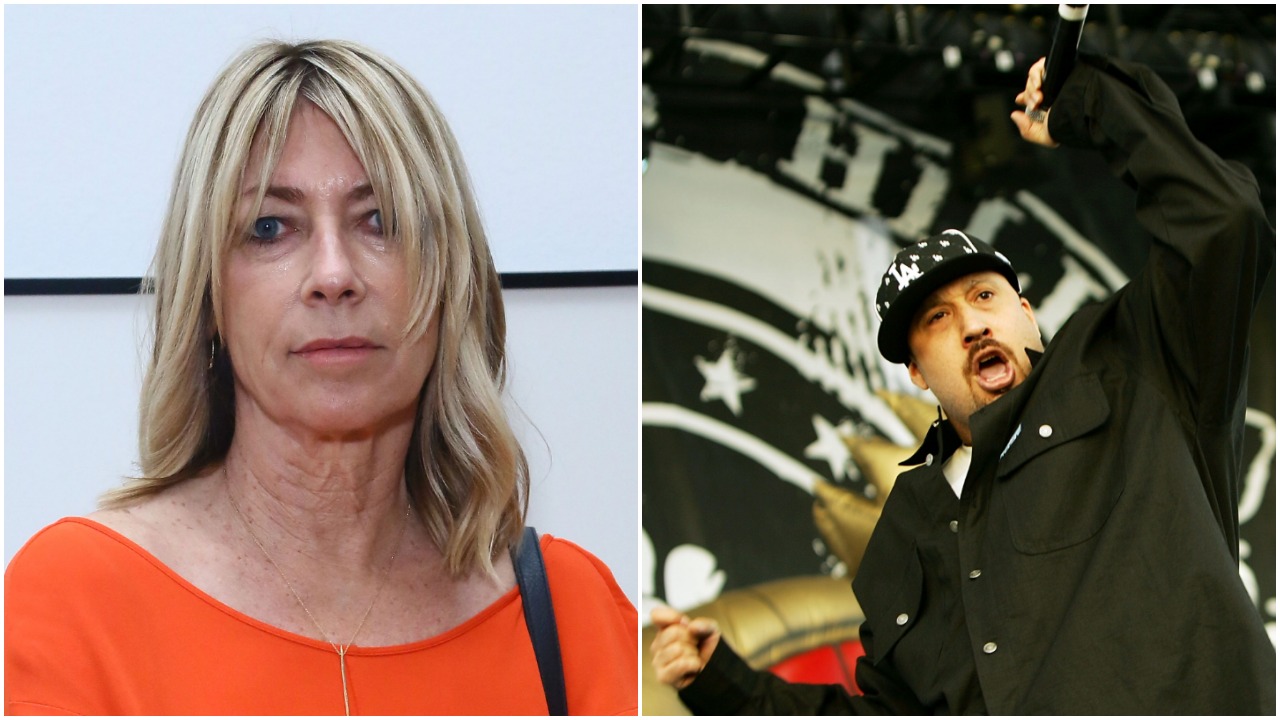The making of the soundtrack for the 1993 film Judgment Night is the subject of a new Rolling Stone oral history. For those of you weren’t alive then and/or don’t remember this cultural moment, the soundtrack hit the top 20 on the Billboard charts, proving more of a success than the action/crime movie itself, which grossed only a little more than half its budget at the box office. The concept of the album was that it paired hip alternative rock acts with rappers to create exclusive one-off collaborations. Some of the pairings scan as relatively logical: Living Colour and Run DMC, Slayer and Ice-T, so on. However, some seem even more unlikely 25 years later: Teenage Fanclub and De La Soul, Mudhoney and Sir Mix-a-Lot, Dinosaur Jr. and Del the Funky Homosapien, and of course, Sonic Youth and Cypress Hill.
Cypress Hill recorded two songs for the album: one with Pearl Jam and the other with Sonic Youth. The soundtrack, after all, was produced by Happy Walters, who managed Cypress Hill and House of Pain (In addition to appearing on the soundtrack, Everlast acts in the movie). One thing you learn from reading Rolling Stone‘s profile is that a lot of alt-rock, punk, and metal bands at that time thought Cypress Hill, in particular, was cool as hell. This included Sonic Youth, according to Kim Gordon, who spoke to RS for the story.
“We recorded Goo and we were in the same studio as Public Enemy and we asked Chuck to sing on ‘Kool Thing.’ So I guess people thought to ask us, I suppose?” Gordon said, wondering aloud why Walters and Cypress Hill’s producer Muggs asked them to do the soundtrack. “When we did our song with Cypress Hill, we didn’t want to be the ones who made a bad Cypress Hill song.”
Muggs alleges that Sonic Youth was the group’s second choice, after Ministry said they were too busy. In the studio, apparently, things didn’t gel immediately.

Also Read
30 Overlooked 1994 Albums Turning 30
“They wanted us to come in and do this rock thing. And we didn’t think that worked so well,” Gordon said. “We wanted to kind of approach it sideways and feel our way into it. I don’t know. I don’t know how they really thought it worked, quite frankly.”
Muggs recalls there initially being “no vibe in the studio, man.” But eventually, after he began to loop and chop samples of the band (“They were looking at me like, ‘What the fuck is this guy doing?'”) and Gordon settled on a hook, something convincing began to materialize. In Gordon’s estimation, weed contributed crucially to the eventual success of the track, which is called “I Love You Mary Jane,” after all.
“There [was] a lot of sitting around, smoking pot, listening to the low end,” Gordon chuckled. “Just a lot of that. … I’m not sure how much I smoked. You didn’t need to smoke anything, there was so much pot in the air…That was amazing.”
Even if you’re a Sonic Youth or rap-rock superfan, it’s safe to say you probably don’t spend a lot of time thinking about “I Love You Mary Jane” these days. According to Gordon, that is not true for at least one person on Earth.
“You know that guy Ninja from Die Antwoord?” Gordon said. “He’s obsessed with our song on that record.”
Has anything ever been less surprising? Read the comprehensive Rolling Stone feature here.
https://youtube.com/watch?v=xRkpOdRbbsc




